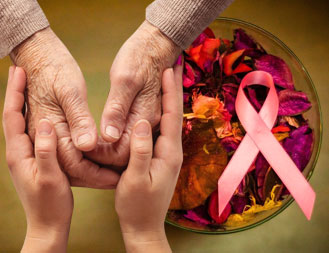HERE’S WHY HEART ATTACK AMONG AMERICAN WOMEN IS MORE ALARMING THAN CANCER
Care For Your Heart Before Others
By: Rosemarie Tamunday Casanova

For a long while, heart disease was regarded as a primarily male health issue. And the woman when she thought about it, was more worried about the effect of the disease on the men in her life.
Today we know that heart disease is as much a problem in women as it is in men. In fact, it constitutes the leading cause of death in American women, surpassing Cancer related deaths which seems to enjoy more awareness.
According to studies, one in every four American women die from heart disease related events. This is a far higher than cancer-associated deaths that cause death in one out of 31 American women.
This not withstanding, heart disease in women is still not getting as much attention as it deserves. According to the American heart Association, just one in five American women saw heart disease as the greatest threat to her health. Also and even less number of women where likely to call for emergency response during symptoms of a heart attack because they didn't think it was necessary, probably not realizing the seriousness of their symptoms.
American women generally consider breast cancer to be a far more serious cause for concern, even though evidence shows that heart disease in women trumps that as a cause of morbidity and mortality.

Contributing to this is the fact that the presentation of a heart attack in women is a lot of times, different from how it presents in the men, and may account for why the symptoms are often misunderstood or even worse, neglected.
Some women also report that their physicians sometimes don't recognise their symptoms and attribute them to other less serious causes.
The need therefore exists to increase the awareness of heart disease in women, while bringing focus on its prevention and also, emphasizing on the sex differences in the disease risk, its manifestation, and management.
HEART ATTACK IN WOMEN; THE SIGNS AND SYMPTOMS
While heart disease may not show symptoms in a lot of women prior to the first episode of a heart attack, when it does, the early symptoms (which may be present about a month before the first episode) may include:
- Unusual fatigue
- Shortness of breath
- Sleep disturbance
- Anxiety
- Indigestion
- Weakness/heaviness in the arms.
- Heart racing
Symptoms of a heart attack when it sets in include:
- Chest pain which could be sharp or dull
- Aching at the back between the shoulder blades
- Pain in the jaw, neck, or throat
- Shortness of breath
- Cold sweating
- Unusual weakness/tiredness
- Nausea
- Dizziness/lightheadedness, etc.
Chest pain in both sexes is the most common symptom of a heart attack. Women are however, more likely to have a heart attack not associated with chest pain but instead, jaw pain, shortness of breath, back pain etc.
This unusual presentation is important to note in order to recognise it when it happens.
RISK FACTORS OF HEART DISEASE IN WOMEN
The risk factors for heart disease in women range from more rigid ones like genetic and hereditary, to biological factors like anatomical abnormalities, down to behaviour and lifestyle.

These factors include:
- Diabetes mellitus
- Hypertension
- Smoking
- Obesity
- Long standing stress
- Positive family history of heart disease especially in first degree relatives
- Sedentary lifestyle
- Gestational diabetes, which is impaired glucose tolerance arising in pregnancy
- Inflammatory conditions like lupus erythematosus and rheumatoid arthritis
Having a heart disease means that you are at an increased risk of having the following:
- A heart attack
- Heart failure
- Stroke
- Aneurysms
- Cadiarc arrest
PROMOTING YOUR HEART HEALTH

Certain things like genetics and biological factors like pre-existing diseases may not be changeable, but studies have shown that healthy lifestyle modifications go a long way towards greatly lowering your risk of a heart attack.
According to the American Heart Association, as much as 330 women are prevented from dying every day from heart disease as a result of healthy choices.
These health choices include:
Stop Smoking
Quit smoking if you do. Professional help is available for this if needed. Also, try to avoid passive smoking as much as possible.
Maintain a Healthy Blood Pressure(Less than 120/80 is Ideal)
Have regular blood pressure checks. If you are hypertensive, stay compliant with your medications as well as any other healthy habits your doctor advises.
Lower Your Cholesterol Levels and Strive to Keep Them at Healthy Levels
The proportion of HDL (good cholesterol) to LDL (bad cholesterol) also matters. The higher the better.
Improve Your Physical Activity
Regular exercise has a lot of benefits for the heart and general health. Try to get 30 minutes or more of mild to moderate exercise every day.
Eat "Heart Healthy"
Go for whole grains and their products rather than simple and highly processed carbs.
Go for healthy fat: These include polyunsaturated fats like in nuts, seeds, and vegetable oil. Avoid saturated and trans fat such as is found in fried foods.
Go for more of plant-based protein sources and less of red meat: Beans, nuts, poultry, whole grains, and fish are healthier alternatives for protein in the diet.
Limit your Alcohol Intake
Limit your alcohol intake to not more than a drink a day.
Maintain a Healthy Body Weight
A Body Mass Index(BMI) of 18.5 - 24.9 is the ideal number.
Develop Stress Coping Strategies
Chronic stress increases the risk of a lot of health problems including heart disease. Deal with stress through strategies like regular exercising, quality sleep, relaxation techniques like yoga, and meditation.
If you are worried about your heart disease risk, then you should feel free to to go see your doctor so that you can discuss a more personalised prevention plan tailored to your needs.
While efforts are being made to increase the awareness of heart disease in women with a lot of improvement being seen, there is still a lot that needs to be done to greatly reduce the burden of disease.
Prevention remains key as women are being encouraged to care for their hearts first before others have to do so.



